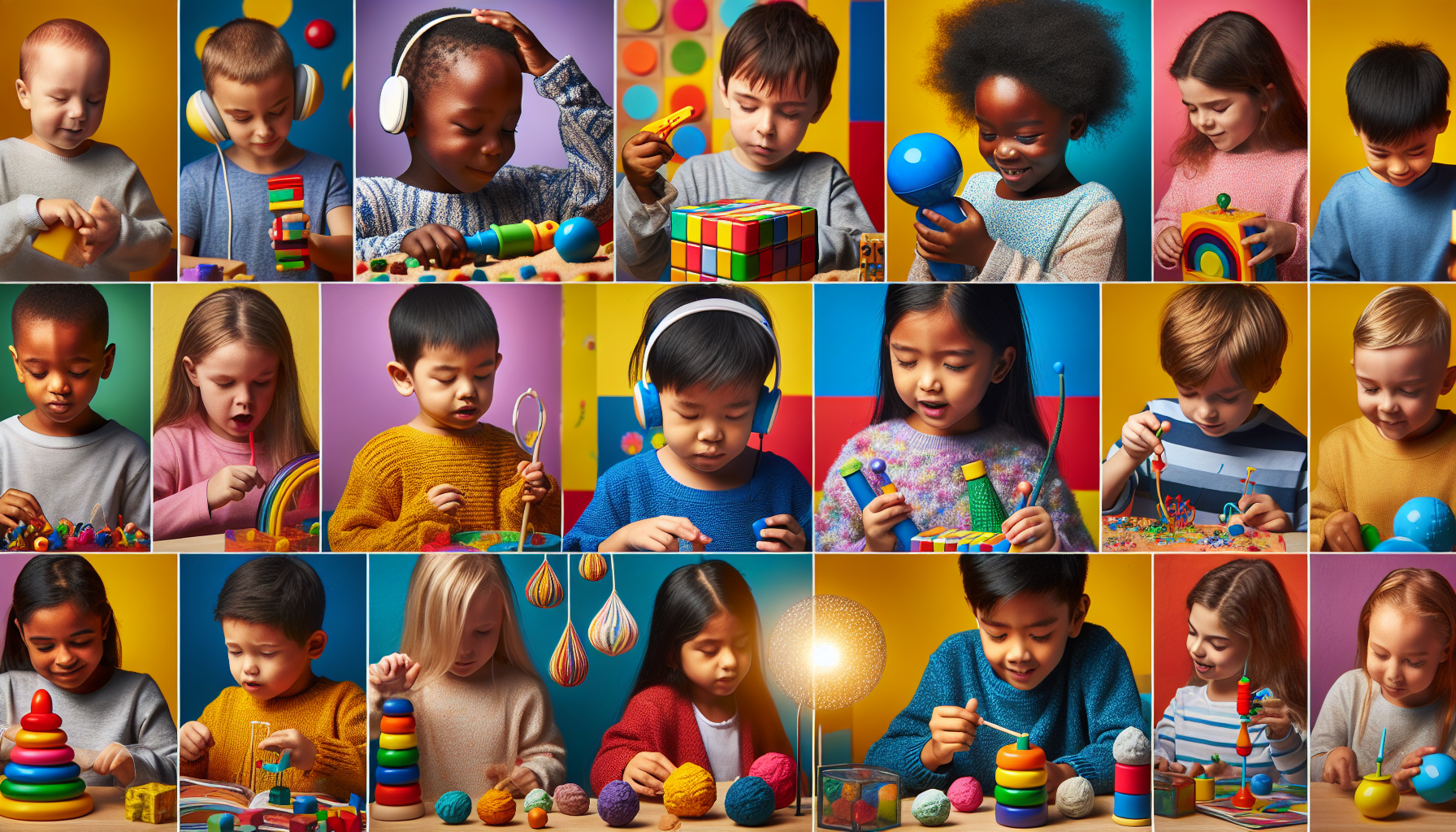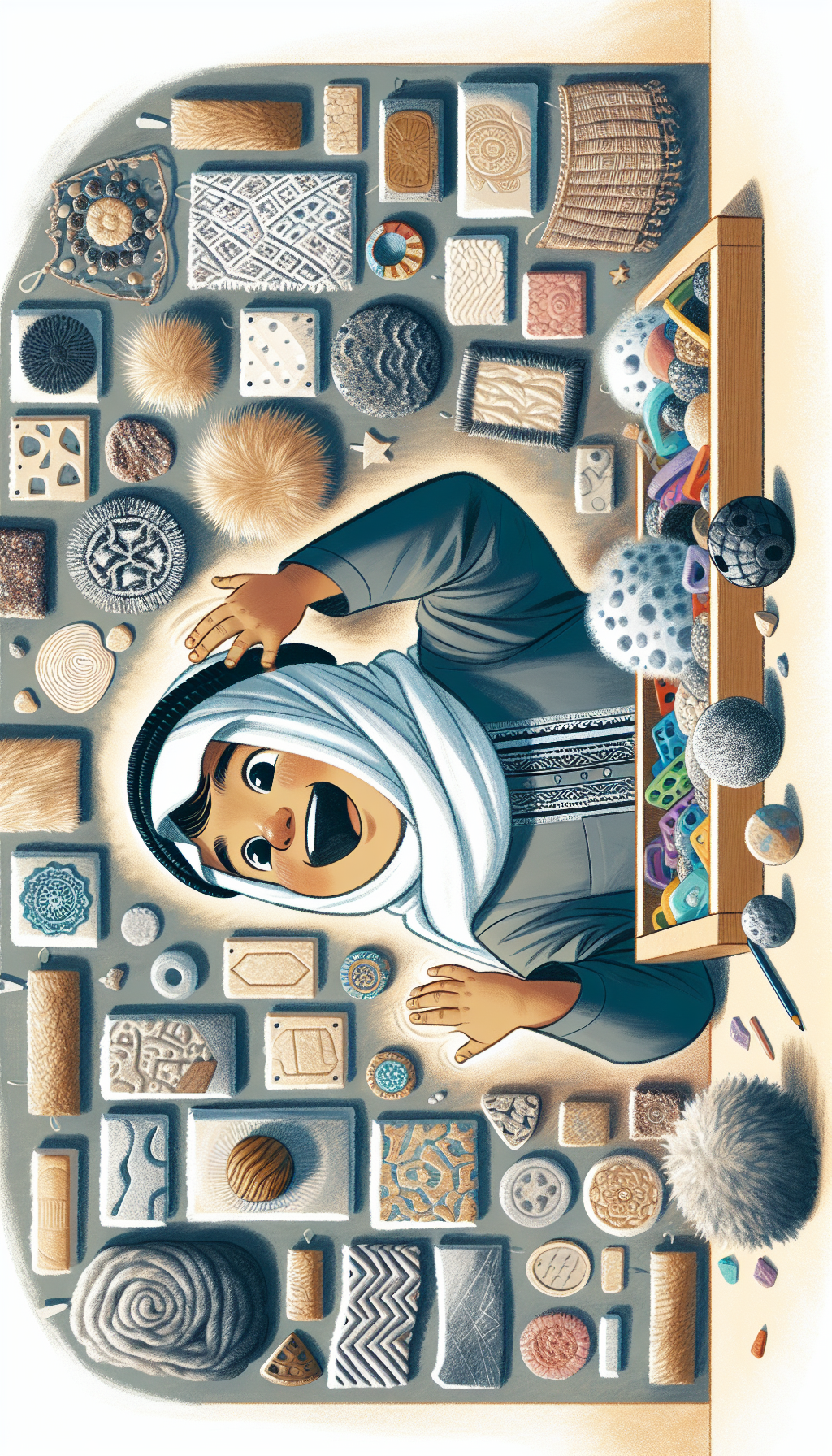Sensory toys are a unique category of playthings designed to stimulate the senses. They play a crucial role in the development of children, especially those with sensory processing disorders or autism. However, the benefits of sensory toys are not limited to any group; they can enhance learning and development in all children by fostering motor skills, promoting cognitive growth, and aiding in the development of social and emotional skills.
The Role of Sensory Toys in Development
Sensory toys are designed to engage one or more of the five senses: sight, sound, touch, smell, and taste, as well as the vestibular and proprioceptive systems, which are critical for balance and spatial orientation. By engaging these senses, sensory toys help children learn about their environment and develop essential skills.
Sensory Integration
Sensory integration is the process by which the brain organizes and interprets sensory information. Toys that involve different textures, movements, and challenges can aid in this process, particularly for children who struggle with sensory processing. For example, a toy that requires a child to sort objects by touch alone helps develop tactile discrimination and fine motor skills. To understand the broader scope of sensory health and its relevance, the resource on Sensory Health provides comprehensive insights.
Cognitive Growth
Sensory toys can also boost cognitive growth by enhancing memory, problem-solving, and decision-making abilities. Puzzles, building blocks, and shape sorters are great examples of sensory toys that promote these skills.
Motor Skills Development
Gross and fine motor skills are honed through play. Toys that require grasping, pinching, or threading, like beads or pegboards, strengthen fine motor skills and hand-eye coordination. Larger toys, like balance boards or mini trampolines, encourage gross motor skill development.
Emotional and Social Development
Sensory toys can also play a part in developing social and emotional skills. For instance, a child using a toy that requires turn-taking or sharing can learn about cooperation and empathy.
The Benefits of Sensory Play
Sensory play with toys can have a multitude of benefits:
-
Therapeutic for Children with Special Needs: For children with sensory processing disorders, autism, or ADHD, sensory toys can provide the necessary stimulation to help them focus and remain calm. They serve as therapeutic aids in managing sensory sensitivities, as detailed in the article Addressing Sensory Sensitivity in Adults.
-
Enhances Learning: Sensory toys can make learning more interactive and engaging, especially for children who are kinesthetic learners. This can lead to improved attention span and better retention of information.
-
Encourages Exploration: These toys encourage children to explore and investigate, which nurtures curiosity and creativity.
-
Supports Language Development: By playing with sensory toys, children can enhance their language skills as they describe their play and ask questions about the objects they are interacting with.
Choosing the Right Sensory Toys
When selecting sensory toys, consider the child’s developmental stage and interests. Toys should be age-appropriate and safe. They should also offer a variety of textures, sounds, and challenges to cater to different sensory needs.
Sensory Toys and Brain Development
The brain is highly responsive to sensory experiences. Sensory toys that stimulate the senses send signals to the brain that help to strengthen neural pathways. This process is crucial for brain development and can be particularly beneficial for children with developmental delays. For an in-depth look at how sensory enrichment affects brain development, consider reading How Sensory Enrichment Affects Brain Development.
Sensory Toys in Educational Settings
Incorporating sensory toys into educational settings can be highly beneficial. For example, sensory corners or stations in classrooms provide a space for children to calm down and regulate their emotions. Additionally, sensory toys can be used to teach specific educational concepts in an interactive and engaging manner.
The Importance of Sensory Toy Quality and Variety
The quality of sensory toys is as important as their variety. Durable, non-toxic materials should always be a priority to ensure the safety and longevity of the toys. A variety of toys will cater to different sensory inputs and developmental needs, providing a comprehensive sensory experience for children.
External Resources
To further explore the impact of sensory toys on development, these external resources provide valuable information:
-
A specialized study on the effects of sensory-based toys in the development of children with autism.
-
Insights into proprioceptive play and its benefits for child development.
-
A review of evidence-based approaches to sensory toy use in pediatric therapy.
-
An exploration of the relationship between sensory play and language development.
Conclusion
Sensory toys are more than just playthings; they play a fundamental role in the development of all children. By carefully selecting and incorporating a variety of high-quality sensory toys into playtime, parents and educators can support the cognitive, motor, social, and emotional development of children, laying a strong foundation for lifelong learning and growth.



